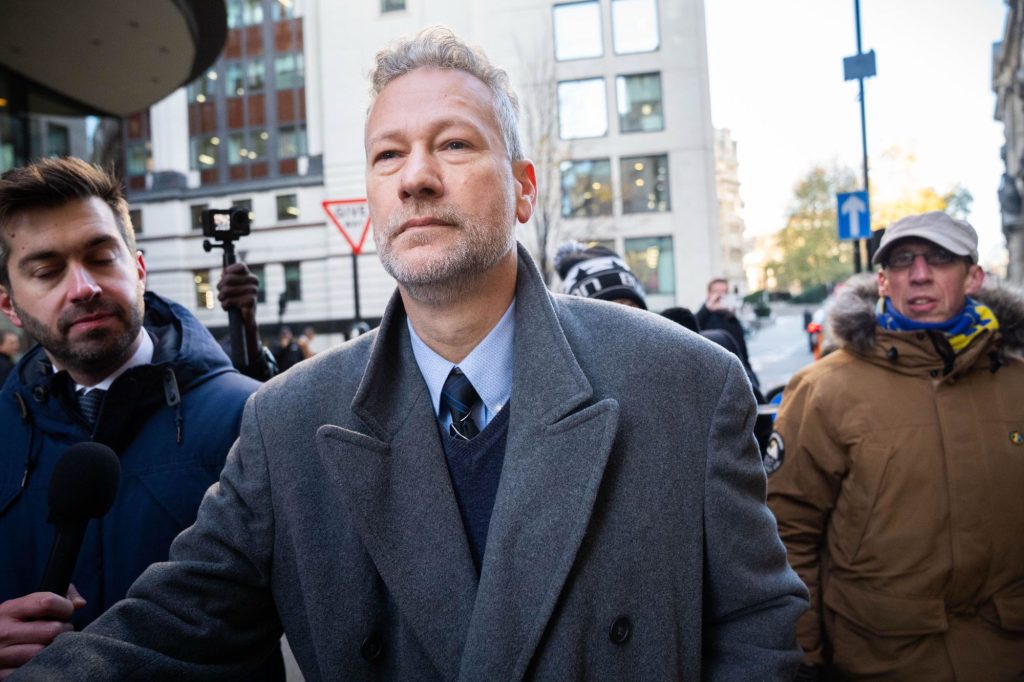Former Reform UK leader in Wales Nathan Gill has received a prison sentence of ten and a half years after admitting to multiple counts of bribery linked to a pro-Russia campaign. At London’s Old Bailey on Friday, the 52-year-old was found guilty of accepting cash in exchange for promoting messages favourable to the Russian government during his tenure as a Member of the European Parliament (MEP). Justice Cheema-Grubb described his actions as a “grave betrayal” of public trust.
Details of the Bribery Offences
Between December 2018 and July 2019, Gill allegedly accepted thousands of pounds from a campaign led by Oleg Voloshyn, a pro-Russian Ukrainian government official aged 44. Evidence presented in court included WhatsApp messages in which Voloshyn promised Gill “postcards” and “Xmas gifts” as tokens of gratitude. Another message explicitly referring to “5k” was interpreted by prosecutors as a promise of a £5,000 cash payment.
As an MEP representing Reform UK’s predecessor, UKIP, Gill made speeches in the European Parliament echoing the talking points supplied by Voloshyn. He also authored articles that echoed pro-Russian narratives, amplifying Moscow’s perspective on key international issues. Prosecutors argued that the messages were read verbatim in official sittings, demonstrating a clear quid pro quo.
Legal Proceedings and Sentence
During the trial, Justice Cheema-Grubb noted the “sophisticated” nature of Gill’s offending and the profound harm it caused to the national interest. He highlighted how the MEP had exploited his position to further a foreign power’s agenda. Upon pleading guilty to eight counts of bribery, Gill faced sentencing guidelines that take into account the severity and premeditation involved in his actions.
The ten and a half year sentence reflects the seriousness with which the judiciary treats acts of political corruption, especially when national security is at stake. Gill must serve at least two-thirds of his term before becoming eligible for parole under standard UK sentencing practice.
Reaction from Political Figures
News of the sentence prompted swift condemnation across the political spectrum. Nigel Farage, Reform UK’s current leader and once a mentor to Gill, labelled the offences “shameful activities” and insisted that the party had no prior knowledge of his dealings. Defence minister Al Carns publicly urged Farage to “leave no stone unturned” in rooting out any remaining pro-Russian influence within party ranks.
Liberal Democrat leader Ed Davey went further, calling Gill a “traitor” who had “aided and abetted a foreign adversary.” He warned that such breaches of trust posed a direct threat to British democracy and national security. In response, Reform UK announced an internal review of donations, membership vetting procedures, and public statements to reassure voters of its commitment to transparency.
Impact on Reform UK and Welsh Politics
Gill’s downfall has left a leadership vacuum in the Welsh branch of Reform UK and caused embarrassment nationwide. His resignation from the Senedd (Welsh Parliament) only came after rank-and-file members discovered the scandal through media reports, suggesting a breakdown in internal accountability. The party now faces questions over how such high-level misconduct went unchecked for months.
In Wales, where public trust in politicians is already fragile, the episode threatens to undermine Reform UK’s credibility ahead of upcoming elections. Local party officials have volunteered to assist law enforcement and regulatory bodies in any further investigations.
Broader Concerns Over Foreign Interference
Gill’s case is not an isolated incident but part of a wider pattern of foreign influence campaigns targeting Western democracies. The UK’s National Crime Agency and security services have repeatedly warned of Russian efforts to sway public opinion and policy decisions through covert funding and disinformation. Prosecutors used the Gill trial to highlight the dangers of corrupted public office and the importance of robust safeguards.
Experts argue that transparency in political funding and stringent conflict-of-interest rules are essential to protect national sovereignty. They call for enhanced whistleblower protections within political parties to ensure future misconduct is exposed early.
Next Steps and Ongoing Investigations
Following the sentencing, the Old Bailey announced that any assets linked to the bribe payments may be subject to confiscation under the Proceeds of Crime Act. Meanwhile, Gill’s legal team has indicated plans to explore potential appeals based on procedural grounds, although few expect success given his admissions.
Authorities are also investigating whether other sitting or former MPs have engaged in similar dealings. The Electoral Commission has launched inquiries into foreign donations received by multiple parties, with preliminary findings expected in the coming months.
Gill’s conviction underscores the judiciary’s firm stance against corruption and the vital need for politicians to uphold integrity. While Reform UK grapples with the fallout, the wider political landscape in Britain may see renewed efforts to fortify democratic institutions against external meddling.
